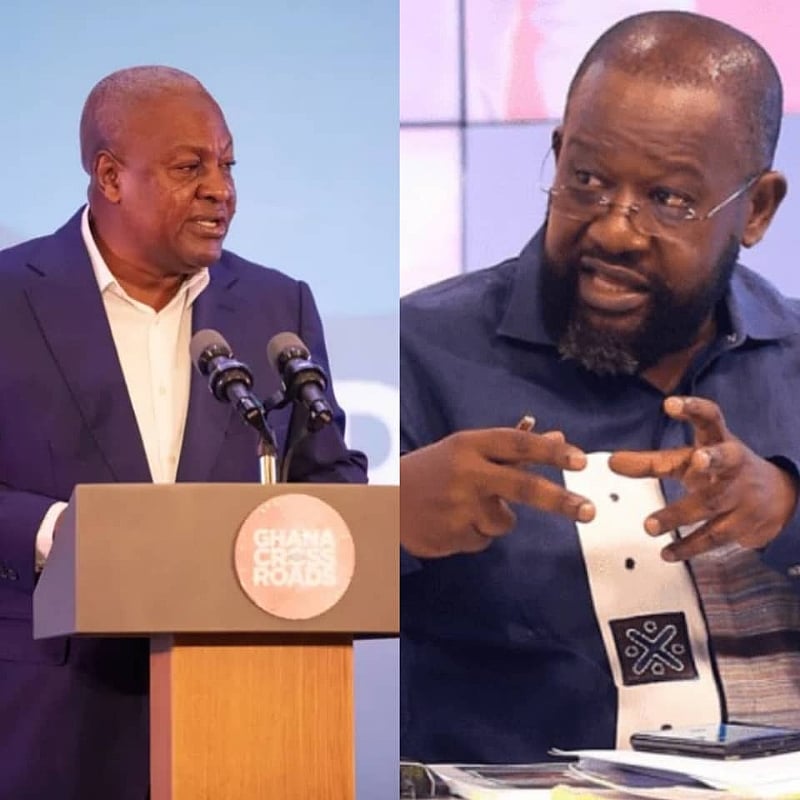The role and responsibilities of a Vice President have become a subject of public discourse in Ghana, sparked by recent comments made by former Vice President Dr. Mahamudu Bawumia. Dr. Bawumia’s analogy of the Vice Presidency to a “driver’s mate” position, highlighting the limited authority and inability to independently pursue policy initiatives, has ignited a debate about the effectiveness and utilization of this crucial governmental position. This discussion has prompted calls for greater clarity and transparency regarding the Vice President’s responsibilities, particularly concerning the current Vice President, Prof. Jane Naana Opoku Agyemang, under President John Dramani Mahama’s administration. Kwame Jantuah, a prominent member of the Convention People’s Party (CPP), has emphasized the need for President Mahama to clearly delineate Prof. Opoku Agyemang’s role to ensure accountability and avoid future ambiguity.
Dr. Bawumia’s characterization of his former role as a “driver’s mate” underscores the inherent limitations faced by Vice Presidents in exercising their influence and implementing their vision. His statement implies a lack of agency and decision-making power, suggesting that the Vice President’s primary function is to support the President’s agenda rather than independently contribute to policy formulation and execution. While his supporters credit him with spearheading Ghana’s digital transformation, his own assessment suggests a constrained capacity to act autonomously. This perceived power imbalance inherent in the Vice Presidency has become a central point of contention, prompting demands for a more clearly defined and empowered role for the Vice President.
Jantuah’s call for transparency reflects a growing concern about the potential for misunderstanding and misrepresentation regarding the Vice President’s contributions and involvement in government affairs. By explicitly outlining Prof. Opoku Agyemang’s responsibilities, President Mahama can preemptively address potential future claims of marginalization or lack of influence. This proactive approach to defining the Vice President’s role would not only enhance accountability but also foster public trust and confidence in the government’s operations. A clear understanding of the Vice President’s mandate would allow for a more accurate assessment of their performance and contributions, preventing any ambiguity or misinterpretation of their role.
The demand for clarity regarding the Vice President’s role extends beyond simply defining specific duties. It encompasses a broader need for transparency regarding the decision-making processes within the executive branch. Jantuah’s emphasis on understanding whether the “buck stops” solely with the President or if a collaborative approach is employed highlights the importance of delineating the power dynamics between the President and Vice President. This transparency would provide insights into the extent of the Vice President’s involvement in critical government decisions, allowing for a more nuanced understanding of their contributions and influence.
Furthermore, a clearly defined role for the Vice President can contribute to a more effective and efficient government. By clarifying responsibilities and establishing clear lines of authority, potential conflicts and overlaps can be minimized. This clarity would empower the Vice President to focus on their designated areas of expertise and contribute meaningfully to the government’s overall objectives. A well-defined role would also facilitate better coordination and collaboration between the President and Vice President, ensuring a more cohesive and effective approach to governance.
In conclusion, the debate surrounding the role of the Vice President in Ghana highlights the need for a more transparent and clearly defined mandate for this crucial position. Dr. Bawumia’s “driver’s mate” analogy has sparked a public conversation about the limitations and potential of the Vice Presidency, prompting calls for greater clarity and empowerment. Jantuah’s urging for President Mahama to clearly delineate Prof. Opoku Agyemang’s responsibilities reflects a growing demand for transparency and accountability in government. By establishing a well-defined role for the Vice President, the government can enhance its effectiveness, foster public trust, and ensure that the Vice President can contribute meaningfully to the nation’s progress. This clarity will not only empower the Vice President but also allow for a more accurate assessment of their performance and contributions, contributing to a more informed and engaged citizenry.














